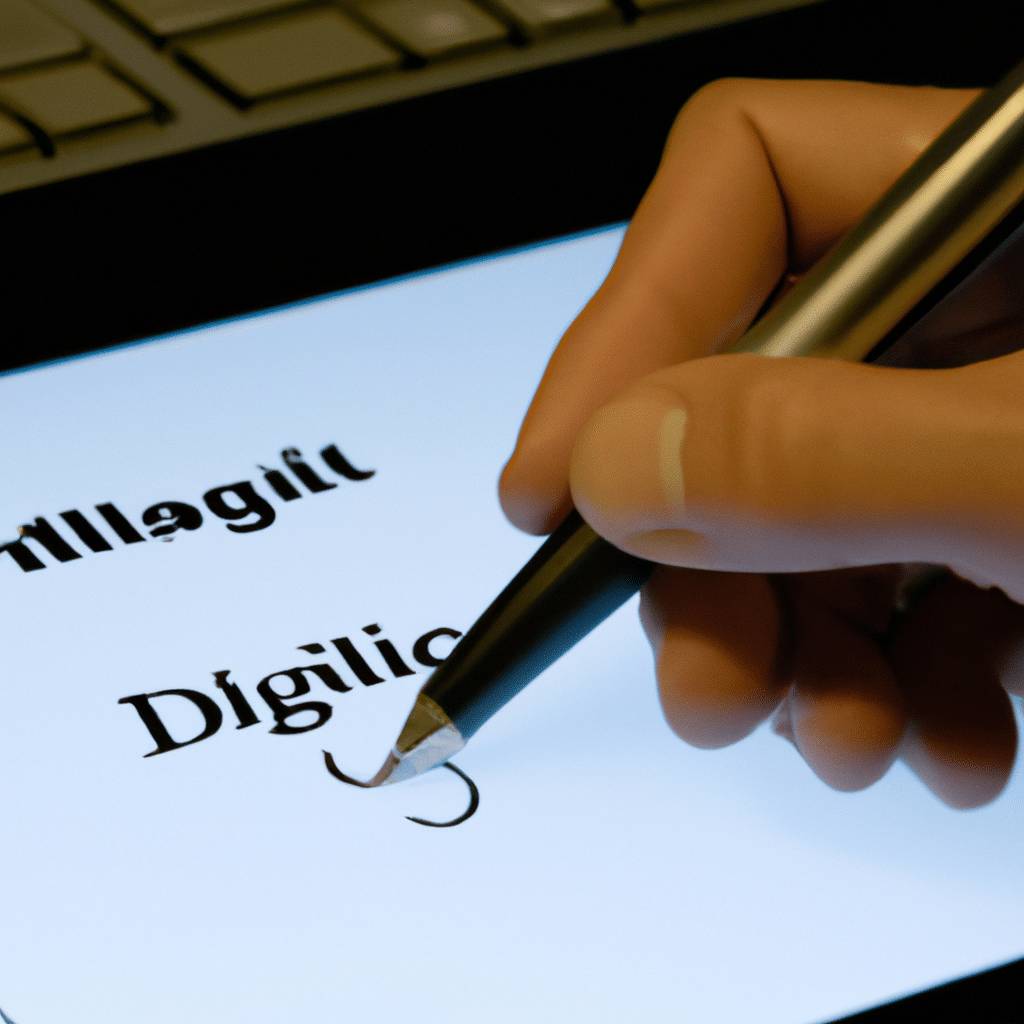The Benefits of Using a Digital Signature on Your Computer
In today’s world, where everything is becoming digital, the use of digital signatures has become quite common. A digital signature is an electronic method of verifying the authenticity of an electronic document or message. It ensures that the document or message has not been tampered with and that it comes from a trusted source. In this article, we will discuss the benefits of using a digital signature on your computer.

What is a Digital Signature?
A digital signature is a mathematical technique used to validate the authenticity and integrity of an electronic document or message. It works by using a digital certificate that contains the signer’s public key and other identifying information. When a document or message is signed using a digital signature, the signature is encrypted using the signer’s private key, which can only be decrypted using the signer’s public key. This ensures that the signature is unique to the document or message and that it cannot be forged or tampered with.
Benefits of Using a Digital Signature
1. Enhanced Security
One of the biggest benefits of using a digital signature is enhanced security. Digital signatures use encryption technology to ensure that the document or message has not been tampered with and that it comes from a trusted source. This makes it virtually impossible for anyone to forge or alter the signature, thereby ensuring the authenticity and integrity of the document or message.
2. Increased Efficiency
Using a digital signature can increase efficiency by reducing the time and effort required to sign and manage documents. With digital signatures, there is no need to print, sign, scan, and email documents. Instead, the entire process can be completed electronically, saving time and reducing the risk of errors.
3. Cost Savings
Using digital signatures can also result in cost savings. By eliminating the need for paper-based processes, organizations can reduce printing, mailing, and storage costs. Additionally, digital signatures can help streamline workflows, reducing the time and effort required to manage documents.
4. Legally Binding
Digital signatures are legally binding in most countries around the world. In the United States, digital signatures are recognized as legally binding under the Electronic Signatures in Global and National Commerce (ESIGN) Act of 2000. This means that digital signatures are just as valid and enforceable as handwritten signatures.
5. Environmentally Friendly
Using digital signatures is also environmentally friendly. By eliminating the need for paper-based processes, organizations can reduce their carbon footprint and help preserve the environment.
6. Improved Customer Experience
Finally, using digital signatures can improve the customer experience by making it faster and easier for customers to sign and manage documents. This can help organizations build trust and loyalty with their customers, leading to increased customer satisfaction and retention.
Conclusion
In conclusion, using a digital signature on your computer offers a range of benefits, including enhanced security, increased efficiency, cost savings, legal validity, environmental friendliness, and improved customer experience. With so many advantages, it’s no wonder that digital signatures are becoming increasingly popular in today’s digital world. So if you haven’t already, consider using a digital signature on your computer to streamline your workflows and enhance your document management processes.












